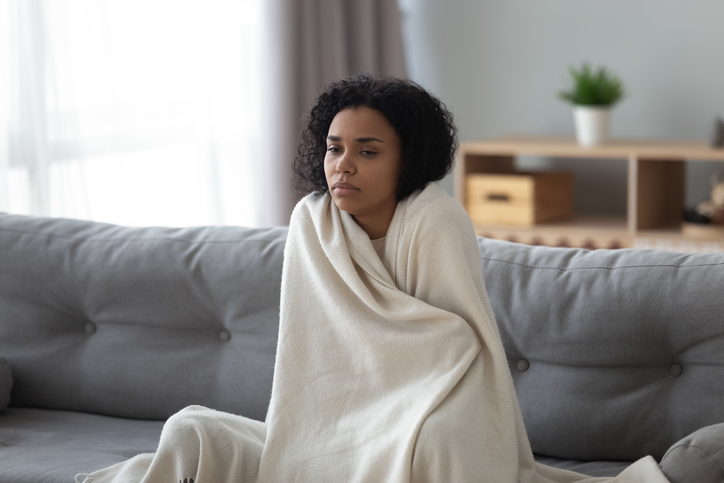SAD, Seasonal Affective Disorder, is a depressive mental health condition that occurs for some people during the winter months. It’s where, during the cold and dark period of the year, a person feels sad, unmotivated, low in mood and energy. They describe feeling down in the dumps and struggling to feel good about their life. Sleep is usually affected with people having trouble getting up and wanting to sleep a lot. For some, they can even feel so depressed they don’t think they can keep living. Then when spring hits, their mood lifts and they feel ok again. SAD is a genuine condition and for those who suffer from it during the winter, it’s a long period of time to feel like you’re struggling.
What causes it?
We don’t know exactly but we think that given it usually occurs during the winter, it’s likely due to the fact that days are shorter and there’s less light which disrupts our body’s circadian rhythm and leads us to feeling down and depressed. The neurotransmitter serotonin (which plays a role in improving our mood) also drops when we have less sunlight. Winter also affects our melatonin levels, a hormone responsible for helping us sleep and may explain why we don’t feel like getting up in the morning.
How do you prevent it?
Just like any form of depression, prevention and early intervention is best. Generally, what’s good for our mood and mental health are:
- Having a regular routine of doing things you enjoy
- Doing social things with others and time with loved ones so you feel supported
- Moving your body and getting the blood pumping
- Trying to reduce our stress levels through regular relaxation and time out
- Getting good quality sleep by turning off devices and relaxing before bed
- Ensuring you’re eating regularly and adequately
- Talking to someone about our worries and concerns
Specific SAD treatment
But in addition to generally looking after our mental health throughout the year, during the winter people with SAD should maximise their exposure to light and sun (in a sun-smart way of course). Getting vitamin D from sunlight helps us produce serotonin which is a neurotransmitter in our brain that improves our mood, that’s how antidepressant medication often works. Also, try and get outside as much as possible exposing the brain to light to literally ‘light it up’ and get it feeling better. Put your winter woollies on and go for a walk in the fresh air and get a bit of sun on your face every day or for a few minutes a couple of times a day. Sit outside and have your lunch for example.
If you can, a nice holiday somewhere warm and sunny during our cold months can break up the winter blues.
If you’ve struggled with this before, get ahead of the game and seek some help from your GP or talk to someone like a psychologist.



